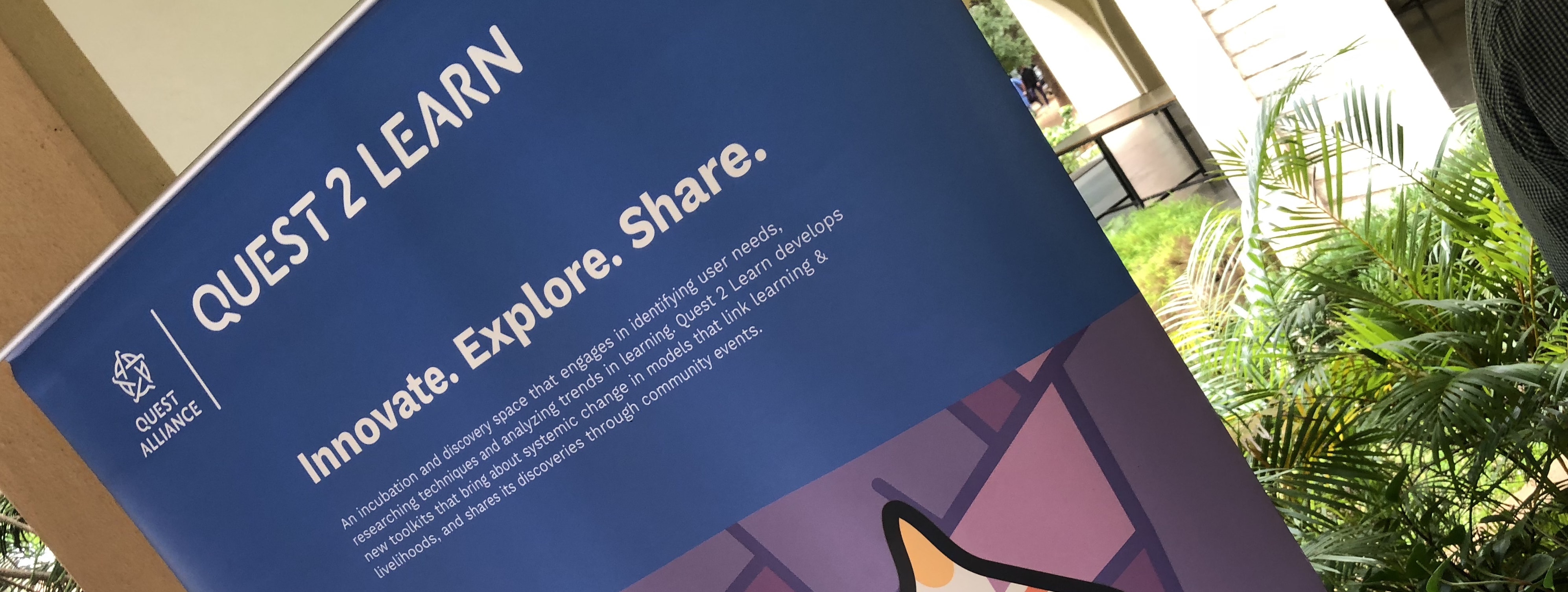Scott McLeod over at Dangerously Irrelevant posted a video of a CNN story about the Ron Clark Academy and asked whether something like this was scalable?
Watch the video as you ponder this question.
This is a question often asked of me, when I am conducting creativity workshops or talking about passionate teaching. In fact I was asked this just a couple of days ago when I was at the Dexter Schools talking about 21st Century Learning and Creativity. This issues comes up most when I am in India where the magnitude of the problems is just so large that scalability is always an issue.
My response to this typically has been quite straightforward. I say that I can’t think that big. I have a congenital defect that renders me incapable of thinking of projects on a large scale. I cannot comprehend states and nations. I can barely comprehend a district. What I am most comfortable with is one classroom. What this does is color my way of thinking about innovation, pushing me towards the position that change can be effected one classroom at a time. When I teach my summer courses as a part of the MAET program, I usually have 25 students, a number I can comprehend. My goal is to touch these 25, to connect with them, and to raise within them a passion for using technology to teach subject matter. If I manage to touch even a fifth of them and they go back to their classes inspired to do something new and better, hey I have succeeded.
This is not to say that policies don’t matter that social change can’t happen. Just that I am personally incapable of thinking in grand generalities. I have a feeling that my skepticism regarding large scale efforts comes from my deep suspicion that visions and plans mutate in often detrimental ways when they move out of the local. So I stay in the local, and frankly that is good enough for me.
Now Scott may think that this is a cop-out and not necessarily a response to his question, but sadly that is the best I can give. The Ron Clark Academy works well where it does. Just training a bunch of teachers in the techniques used there and asking them to implement it in their classrooms will not necessarily translate into better student achievement. For instance, I am not sure that the Ron Clark approach would work in India, a country with very different cultural and historical expectations of what teaching and learning could/should be. So I choose to withhold judgment and work harder with the people I know I can influence.




Many of my pals here and on the other board realize that my two children go to private school and realize that I am an advocate for good schools whether they are independent or public schools. The kids went to a great general public center college thankfully, so the transition to personal school isn’t as stark, but I must say private school has been a fantastic experience. Now I understand why the lucky preserve their great fortune – its extraordinary. Gettingadmitted to private school is no simple task though, and if you are serious about it you had much better be ready. You’ll need to take the ISEE test or the SecondarySchool Admission Test, and go through an interview with several members of the staff. I can tell you from expertise and from conversations with several other parents, this could be probably the most demanding period within your life. So you can imagine how difficult it is on the children, and if circumstances like this build character, they may have fantastic foundation.
I really appreciate what Mr. Clark is trying to accomplish, the selling of books and movies, but to do it using kids and education is deplorable. I see that each child at his academy is equipped with a dell computer, free from a sponsor. If he can get that done is a place like Clayton County, where students are really in need, then I will be impressed. I am not impressed that he hand picks students for his school. I would really like to see the criteria used for picking these kids.
Ron Clark Academy loses 25% of the students that they handpick, if this was a public school we would scream for it to close. Their intentions are good enough but they never are recognized for their high student and staff turnover. Only one teacher, other than Ron Clark, is from the original staff and she is the co-founder.
If someone was to truly look inside for the true facts they would see a very different story that the fable that has been told.
Thank you for your kind words. And, as to your whether students resist it – some do but again they usually have figured the system out well enough to know that this is just one more course with a faculty member setting weird goals and the trick is to do whatever is needed to get through the semester 🙂
P.S. I would be curious to know what characteristics or criteria you use to discern/determine those who are most likely to be receptive to your influence?
I am coming to believe that long-term change can ONLY be effected one student at a time, one teacher at a time, and therefore, one classroom at a time. That perspective has helped me to consider more carefully both the purposes of what I am teaching student teachers and the pedagogies I am using to do so. As a result, I have been working hard to reframe and refocus what I am doing in ways that keep the individual more clearly in view.
With that said, one of the knotty problems I am currently wrestling with is how to support students in feeling comfortable experimenting with approaches that are so contrary to their prior experiences as learners and to their present images of teachers. Scaling that up to the mentor teachers who reinforce many of those prior experiences and conceptions of teaching/learning is an even more daunting task.
My experiences in your class were quite antithetical to the rest of my schooling. Your approach gave me “vuja de experiences” that expanded the depth and breadth of my understanding, stimulated an appetite for further learning, and shifted my perspective in powerful ways. I’m wondering if you ever encounter students who resist that, and what approaches you take when they do?